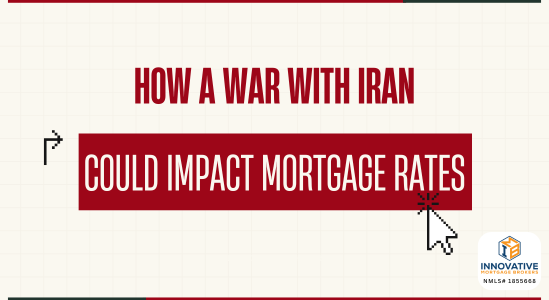FHFA Opens Door to Cryptocurrency in Mortgage Risk Assessments: What It Means for Borrowers and…
Is it Possible to Buy a House with Credit Card Debt?
Credit card usage increased by 15% in the third quarter of 2022 versus the same time the previous year. With costs up and income down, it’s no wonder many people rely on credit cards regularly.
But does having credit card debt mean you can’t qualify for a mortgage? Will it get in the way of you buying a home?
It might not; it depends on your circumstances.
Here’s what you should know.
What Lenders Consider
When you apply for a mortgage, lenders consider many factors, including your credit score, income, monthly debts, and assets.
Your credit score and income vs. debts are the two most significant factors. First, lenders look at your credit scores. If they don’t meet the loan requirements, you won’t qualify, and the lender won’t move forward with the loan program.
Next, they’ll examine your income and debts. They want to see that your debts don’t take up all your income and that you can comfortably afford the mortgage.
Lenders look at the big picture. They don’t focus only on credit scores or debt-to-income ratios. Instead, they consider everything together to determine your risk.
Does Credit Card Debt Affect your Credit Score?
Many people don’t realize that your credit card debt also affects your credit score. If you don’t handle it properly, it could decrease your score and hurt your chances of approval.
Here are a few ways credit card debt affects your credit score:
- Payment history
If your credit card payments are on time, it can help your credit score. Your payment history is the most significant part of your score. However, if you make payments late, it can hurt your credit score.
- Utilization ratio
Your credit utilization ratio evaluates how much of your credit line you have outstanding. To help your credit score, it’s best to use no more than 30% of your credit line or $300 for every $1,000 in your credit line. If you go over that, it can hurt your credit score.
- Number of credit cards
If you own too many credit cards, the revolving debt can significantly exceed any other debt, hurting your credit score. So keeping the number of credit cards to a minimum is the key to keeping your credit score high.
Understanding the Debt-to-Income Ratio
When lenders consider your credit card debt, they look at your debt-to-income ratio. This compares your gross monthly income (income before taxes) to your monthly debts.
Your monthly debts include more than your credit card payments. Each situation is different, but on average, here’s what they include:
- Minimum credit card payments
- Car loan payments
- Personal loan payments
- Student loan payments
- Mortgage payments, including principal, interest, real estate taxes, homeowner’s insurance
Each loan program has a different debt-to-income ratio requirement, as does each lender.
How Credit Card Debt Affects your Debt-to-Income Ratio
So if you wonder if you can buy a home with credit card debt, it depends on how much you have and how much you make.
Lenders use your minimum credit card payment in your debt-to-income ratio. Therefore, having a few credit cards with low balances may not affect your DTI too much, allowing you to qualify.
However, having a large amount of credit card debt plus other debt, such as a car loan or personal loan, could make it difficult.
Lenders total all your monthly debts and compare them to your monthly income. If you have high credit card debt but apply for a low mortgage amount, you may still qualify, it all comes down to your DTI.
Ways to Decrease your Debt-to-Income Ratio
If you can’t qualify because your debt-to-income ratio is too high, here are a few ways to decrease it.
Keep in mind that increasing your income may not help because lenders typically require a two-year history of income before they will use it for qualifying. So, for example, if you started a side hustle a few months before applying for a mortgage, lenders typically wouldn’t include the income in your debt-to-income ratio.
But there are ways you can use the income to decrease your DTI.
- Pay your debt off
If you have extra income and can pay the debt off without affecting the funds available for your down payment, take care of the debt. The more debt you can pay off, the lower your DTI will get and the higher your chances of getting approved for a mortgage become.
- Pay more than the minimum payment
If you can’t pay your debt off entirely, consider paying more than the minimum payment to get your balance down and lower your minimum required payment. Most credit card companies require a certain percentage of your balance for the minimum payment. Therefore, the lower your balance, the lower your monthly payment.
- Consolidate your debt
If you can’t afford to repay your debt, consider consolidating it. For example, you may qualify for a 0% APR balance transfer card with decent credit. This will lower your minimum payment and make it easier to qualify for a mortgage.
- Borrow a lower mortgage amount
If you can’t reduce your credit card debt, consider playing with the mortgage amount. You may qualify for a lower mortgage payment, and borrowing less money is the best way.
- Find better mortgage terms
You may also lower your DTI by getting different mortgage terms. For example, taking a 30-year instead of a 15-year term produces a lower mortgage payment, which keeps your debt-to-income ratio lower.
Final Thoughts
You can buy a house if you have credit card debt, but you must keep it manageable. Of course, it’s best to keep your credit card debt to a minimum for the highest chances of approval, but some debt may not stand in the way.
The key is to pay your debts on time, pay the balances off as quickly as possible, and maximize your income. The more positive factors you can provide when applying for a mortgage, the easier it is to get approved with credit card debt.
At Innovative Mortgage Brokers we provide a wealth of options when it comes to a mortgage in PA and FL. Not only do we have access to the most competitive mortgage rates, but we also offer specialized insights that help you make an informed choice. We can search through many products from multiple lenders and guide our clients to the best one for their individual needs. At Innovative Mortgage Brokers we can also provide advice on interest rate types, loan terms and loan structures to enable customers to obtain the most cost-effective financing package. By working with us, consumers ensure that their questions are answered, and their financial interests are always prioritized.





